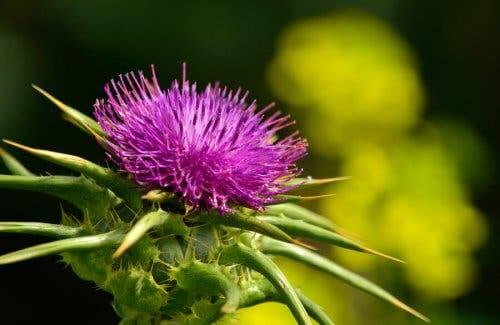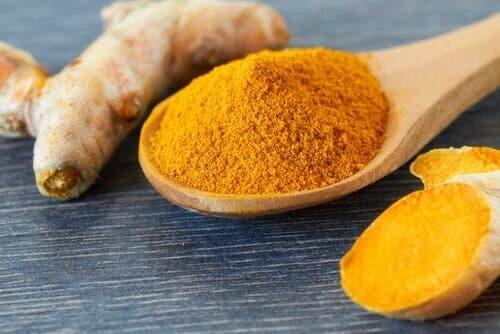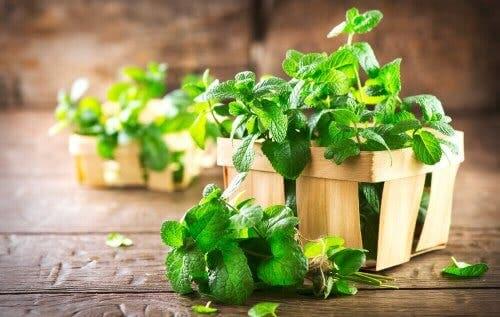Can You Fight Gallstones Naturally?

Gallstones are hard deposits that form in the gallbladder. The gallbladder is a small organ located under the liver, just in the upper right part of the abdomen. Today we ask the question: are there ways to fight gallstones naturally?
Treatment for this condition varies depending on its cause and severity. Therefore, before trying to control it with natural remedies, it’s important you consult your doctor to get an accurate diagnosis. If it’s a mild case, natural remedies can work. Keep reading to discover some natural treatment options.
How to fight gallstones naturally: 5 alternatives
Natural remedies to combat gallstones have several goals. First, they help decrease pain, nausea, and other symptoms of this condition. They also help dissolve the stones, facilitating their elimination.
Remember that gallstones are usually formed by an excessive accumulation of cholesterol or bilirubin. In both cases, they form hard deposits that can obstruct the bile ducts, preventing the proper flow of bile.
Although medical treatment is based on using some medications and changing your diet, you might also need surgery. Similarly, natural products have traditionally been used to help fight gallstones. Are you ready to try them? Take note!
You might like to read: What Foods Should You Eat if You Suffer from Gallstones?
1. Milk thistle

Milk thistle (Silybum marianum) can help fight gallstones and other liver disorders. This is attributed to its content of flavonolignans, better known as silymarin, the effects of which have been the subject of several studies for its pharmacological uses.
How to use it:
- You can use this plant’s extracts as tea or a supplement. In the first case you can drink up to 2 cups a day. In the case of supplements, you should follow the dosage suggested on the product label.
Caution: This remedy is not recommended in cases of high blood pressure, diabetes, pregnancy, and lactation. Also, you should avoid excessive consumption, because it has a laxative effect. You should consult a doctor beforehand in any case, especially if you use it to treat liver diseases.
2. Apple juice
To date, there are no conclusive scientific studies on the efficacy of apple juice in treating gallstones. Despite this, anecdotal evidence suggests that it may contribute to overcoming this condition.
How to use it:
- To fight gallstones, we recommend you consume one liter of apple juice per day for a week.
3. Turmeric

People have used turmeric for hundreds of years as a remedy to combat gallstones. Due to its choleretic and cholagogue properties, it helps stimulate your gallbladder functions, helping to empty it. It also helps maintain a good flow of bile, preventing it from accumulating in the bile ducts.
How to use it:
- Since it’s a very versatile spice, you can add it to smoothies, juices, or soups. You can also make it into a tea or infusion (to drink twice a day). Finally, you can buy turmeric supplements.
Discover: Read These Diet Tips to Prevent Gallstones
4. Pear juice
Due to its significant contribution of pectin, a type of water-soluble fiber, pear juice can help prevent gallstones from forming. It also helps reduce cholesterol concentrations, which helps dissolve gallstones.
How to use it:
- First, you should pour half a glass of natural pear juice. Then, mix it with an equal amount of warm water. Ideally you should drink 2 or 3 glasses a day, for a minimum of two months.
5. Mint to fight gallstones

Bioactive compounds in mint leaves, such as terpene, can help fight gallstones. The natural oils that the plant concentrates in its leaves help stimulate the flow of bile juices, preventing their retention.
How to use it:
- You can make a mint tea or infusion and drink it 2 or 3 times a day. In this particular case, you should ideally drink the remedy every day, for 2 or 3 months.
Do you have gallstone symptoms? Don’t hesitate to consult your doctor. Although it may not initially seem serious, it’s important to receive prompt diagnosis and treatment to avoid other complications.
All cited sources were thoroughly reviewed by our team to ensure their quality, reliability, currency, and validity. The bibliography of this article was considered reliable and of academic or scientific accuracy.
- Csupor, D., Csorba, A., & Hohmann, J. (2016). Recent advances in the analysis of flavonolignans of Silybum marianum. Journal of Pharmaceutical and Biomedical Analysis. https://doi.org/10.1016/j.jpba.2016.05.034
- Dekkers, R. (1999). Apple juice and the chemical-contact softening of gallstones [14]. Lancet. https://doi.org/10.1016/S0140-6736(05)77083-5
- Li, Y., Li, M., Wu, S., & Tian, Y. (2015). Combination of curcumin and piperine prevents formation of gallstones in C57BL6 mice fed on lithogenic diet: Whether NPC1L1/SREBP2 participates in this process? Lipids in Health and Disease. https://doi.org/10.1186/s12944-015-0106-2
- Rasyid, A., Rahman, A. R. A., Jaalam, K., & Lelo, A. (2002). Effect of different curcumin dosages on human gall bladder. Asia Pacific Journal of Clinical Nutrition. https://doi.org/10.1046/j.1440-6047.2002.00296.x
- Reiland, H., & Slavin, J. (2015). Systematic review of pears and health. Nutrition Today. https://doi.org/10.1097/NT.0000000000000112
- Balakrishnan, A. (2015). Therapeutic uses of peppermint –A review. Journal of Pharmaceutical Sciences and Research.
This text is provided for informational purposes only and does not replace consultation with a professional. If in doubt, consult your specialist.








